
SEO refers to providing users with relevant search results depending on their internet queries. The most relevant sites relating to that search query will appear first on the SERP.
Suppose you want your website to appear higher in search engine results for keywords related to your business. In that case, you should adopt an SEO strategy that incorporates various tactics to increase your website’s visibility. An excellent SEO strategy is crucial to enhancing the quality of your site and the number of visitors since it is the most popular means of discovering and accessing online information.
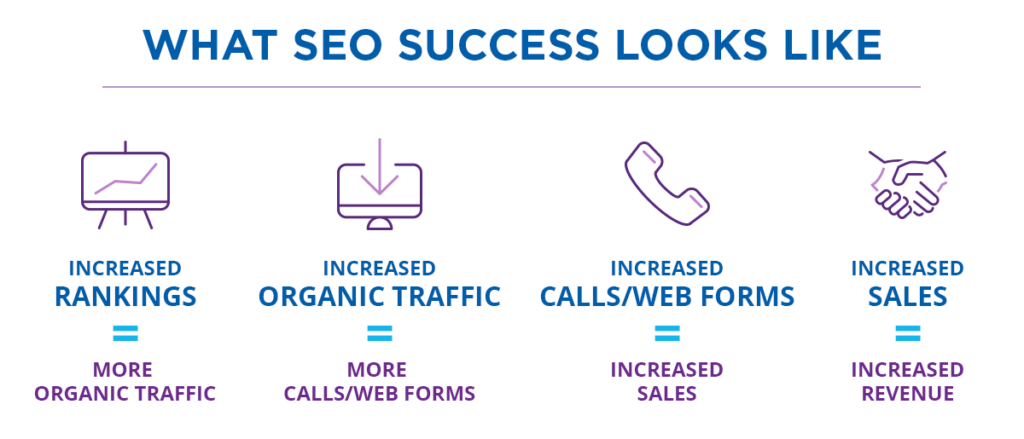
While algorithm changes and advancements continue, specific proven SEO tactics will stay in use to be employed, helping your website rank higher in search engine results.
The most challenging part of SEO is executing optimization tactics and concepts. It’s not easy to apply the principles you’ve learned to your website and comprehend the real-world methods you must follow to improve your organic search results.
While SEO secrets are critical to the success of a digital marketing campaign for any business, it’s essential to have an effective strategy in place. There is a slew of SEO facts and tactics out there encouraging you to stuff your content full of keywords and headlines. To improve your website’s search engine ranking, it’s not enough to simply define the keywords you want to use.
Let’s delve deep into understanding the importance of SEO and unwrapping the SEO secrets that are sure to impact your website’s visibility.

Understanding the Significance of SEO
SEO is the practice of generating traffic to your website by improving the number and quality of visitors. Your business’s online presence will be more widely known if you appear higher in search results for keywords related to your industry.
Consequently, you’ll have more chances to close deals with qualified leads. SEO may elevate your company’s reputation as dependable while enhancing your customers’ overall impression of your brand and website.
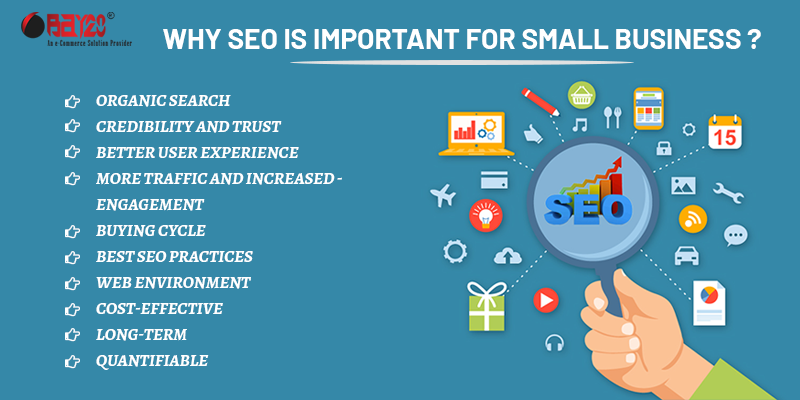
Online shoppers are more likely to choose one of the first five results from a search engine while looking for a service or product. SEO may help your website rise in the rankings and get more exposure online, increasing the likelihood of prospective buyers visiting your site and making a purchase.
Additionally, here are some more critical results of SEO.
Visibility and rankings
When looking for a product or service online, users are more likely to pick one of the first five results. One of the most important goals of SEO is to make it easier for prospective clients to find you when they search for what you have to offer. The better your rating, the more prominently you appear in search results.
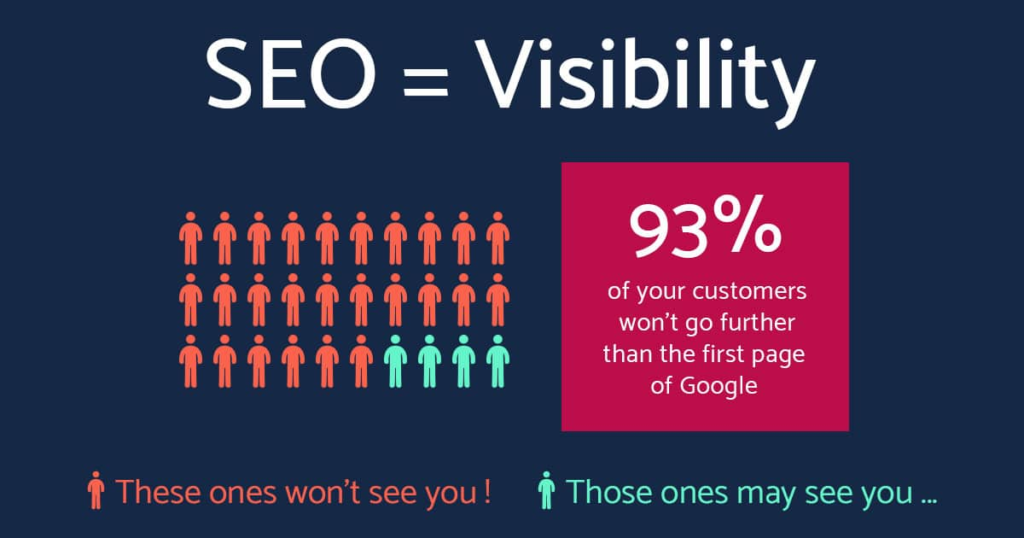
SEO improves your website’s search engine rankings and online exposure, increasing the likelihood that prospective consumers will visit your site and make a purchase. Optimizing your organic page ranking is critical because prospects are more likely to find and visit your website if you appear higher on a search engine result page (SERP).
A quarter of online visitors never get beyond page one of the search results; therefore, your SEO efforts must be successful as possible if you want to improve your exposure.
Web traffic
A lack of traffic to your website results in missed sales opportunities. SEO aims to increase website traffic by raising your website’s exposure and ranking on search engines. The more people interested in your products and services, the more likely you’ll make a sale.
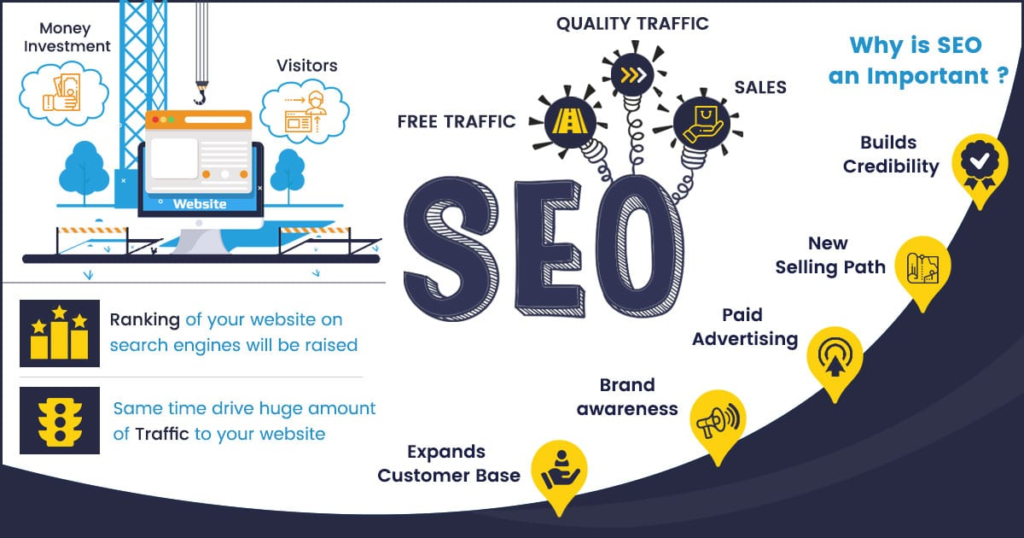
Featured Snippet, or position #0, is the holy grail for many online marketers since it shows above the top-ranked URL. To get the most out of your organic click-through, you’ll want to use material from a landing page on a blog that answers a query people are looking for.
Consequently, if your goal is for a higher rank on SERPs, you need to use SEO strategies that will assist you in achieving that position.
Trustworthy
Google and other search engines will rank you higher if you have a good SEO score. A secondary advantage is the trust you build with your prospective consumers. Search engines appreciate Page Authority (PA) in the same way web users do.
Your website must be authoritative, quality, updated, and provide value to the user base to be trustworthy.
The better your score, the more trustworthy your site seems to be. While it’s tough to change your PA rating, many SEO professionals feel it has something to do with your link profile or the number of external links coming from reputable and well-visited sites.
Visitor experience
Quality content and on-page SEO optimization also improve your site’s usability, which is why SEO is so important. The outcome is a great client experience.
A well-optimized website addresses all product and service queries. Search engines can readily locate information if websites are designed around the user experience. Unusable websites will be penalized by search engines.
Responsive design ensures that mobile and desktop users can access your site. To reduce your bounce rate, you need to keep your visitors on your site for extended periods. Websites should load in 3 seconds; longer page load times may lead to higher bounce rates and lower conversions.
Growth
There’s no arguing that SEO is critical to the success of your business. As we discussed before, the more visitors your site receives from organic (i.e., non-paid) search engine results, the better. That’s all there is to it.
A well-optimized website is more likely to bring in new visitors and generate revenue. People are also more inclined to spread the word about your company on social media sites like Facebook and Instagram when they find your website through a search engine first.
10 SEO Secrets That Your Website Can Benefit From
If you’re just getting started with SEO, here are the top 10 SEO secrets you need to implement to improve your site’s search engine rankings.
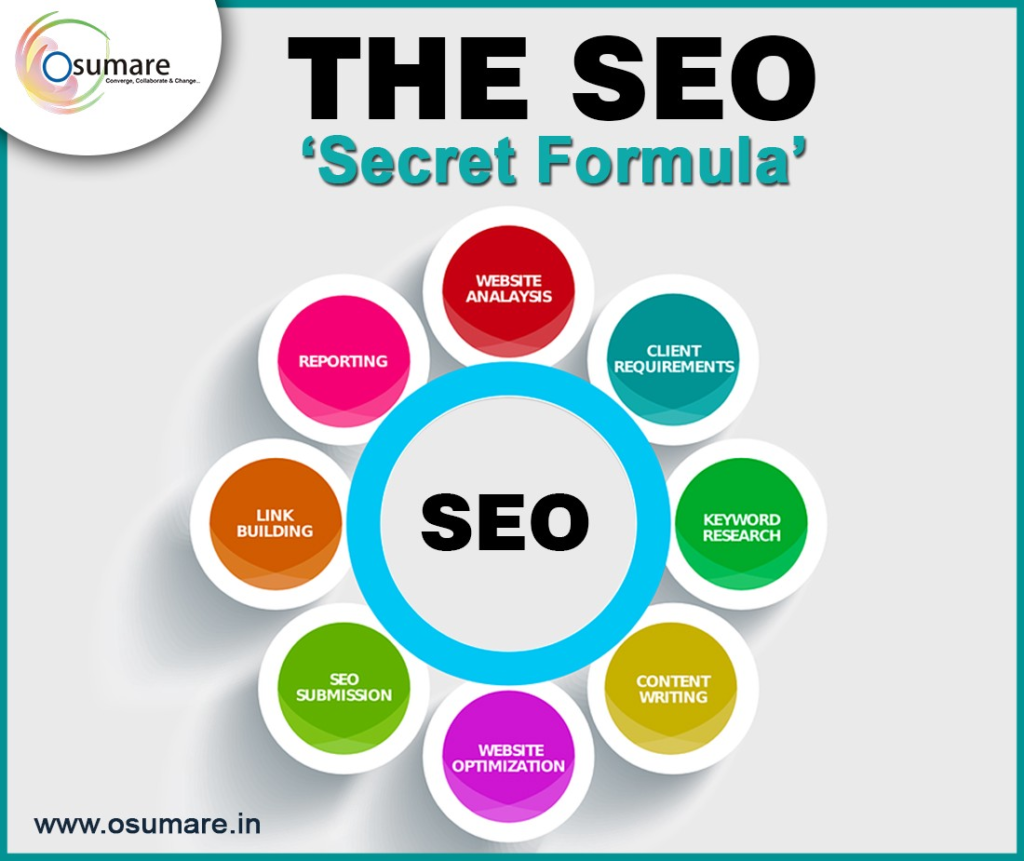
1. Create inspiring content
The internet is mainly content-driven, yet users’ attention span is 3–5 seconds. If you can’t do it in that time frame, they’ll click back and leave. Also, search engines like Google track exit clicks and count them as bounce rates.
You must engage users after 3–5 seconds. Most website visitors quit before a minute, so if you haven’t thoroughly captured them, you won’t.
An excellent infographic, a video with a transcript, or a list of what you have to offer may help you reach this goal. Without content, you can’t make a site user-friendly.
Today’s search engines are intelligent enough to determine what users look for when searching. LSI keywords provide additional context for your article. If your text is effectively formatted, the search engine bots can filter through your website, identify its content, rank it, and index it.
2. Know the Google SEO algorithm
Google’s algorithm has been continually evolving throughout the years, which is no exception. They don’t always notify customers when a change has been made, making it a little challenging to figure out what’s going on. The presence of this critical obstacle still hinders SEO success.
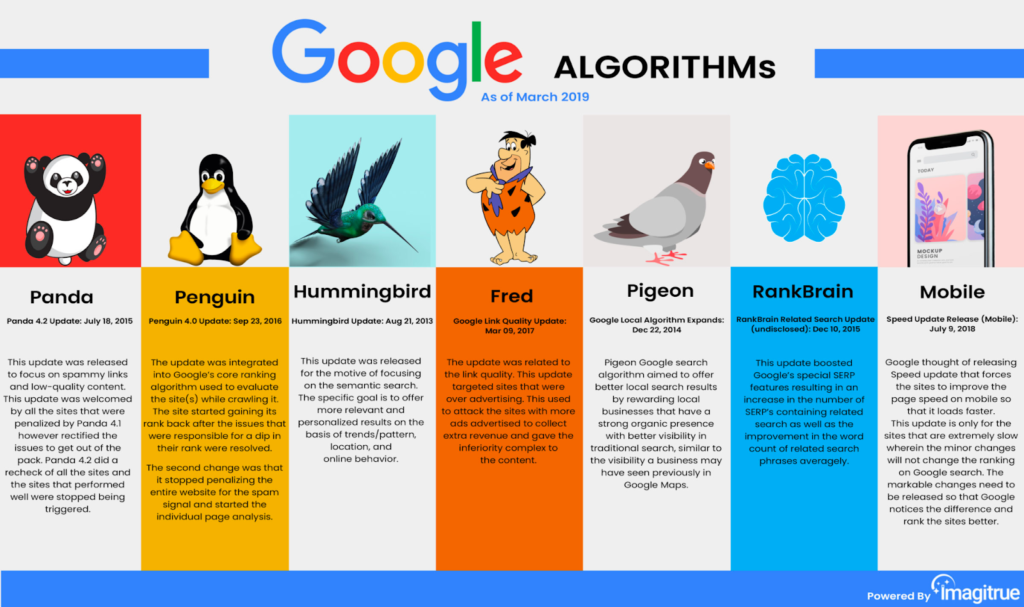
The SEO business Moz offers a Google algorithm change history that you may use to investigate the algorithm changes made by Google. The Google Webmaster Central tool, in addition, is a beneficial resource.
3. Add image alt description.

Adding alternative text (alt tags) may help visually impaired users and offer context for photos. To correctly index a picture, it must include alt tags.
Descriptive alt tags help people comprehend a picture if it fails to load. Make sure the picture description and file name are relevant and correct.
Although search engines have evolved, they still cannot recognize graphics on a page. Your images may not rank if search engines misinterpret them.
Writing a descriptive alt tag is essential for SEO. You must optimize your images for Google and other search engines.
4. Write excellent title and meta tags.
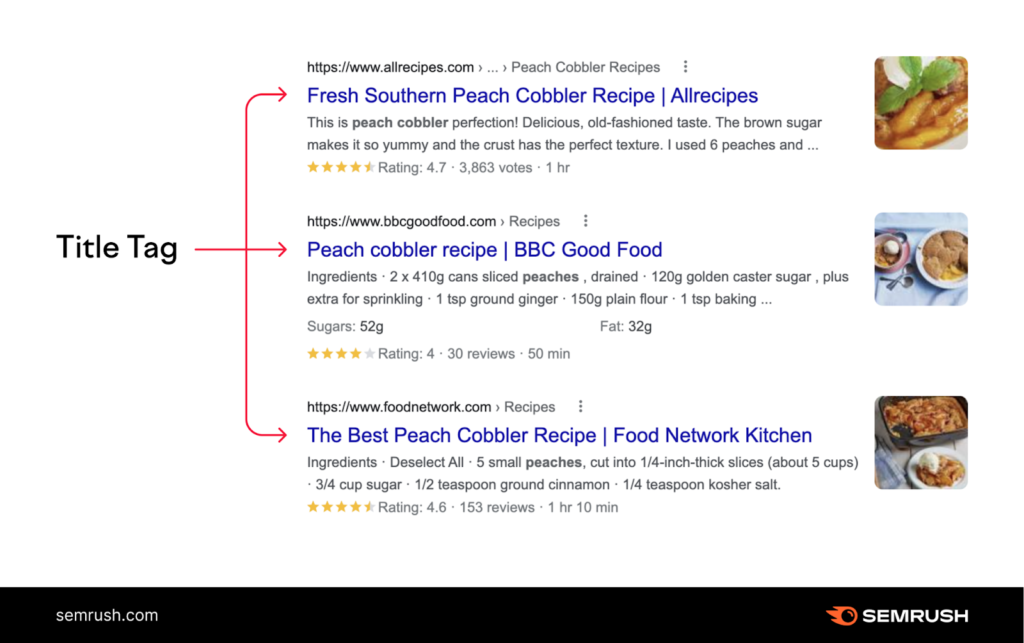
The meta descriptions and title tags don’t affect your SERP ranking directly. A meta description is a brief (156 characters) explanation of your page. Meta tags may enhance user click-through-rate. Your SERP ranking will improve if more people click on your links. Thus, your meta description should be precise and relevant.
The title tags are the clickable headline in search engine results. They assist search engines in interpreting your page. Title tags often provide consumers with their first impression of your website. Include primary keywords in your title tags (under 60 characters). The results will emphasize your keywords.
5. Find the 404 error pages on your website.
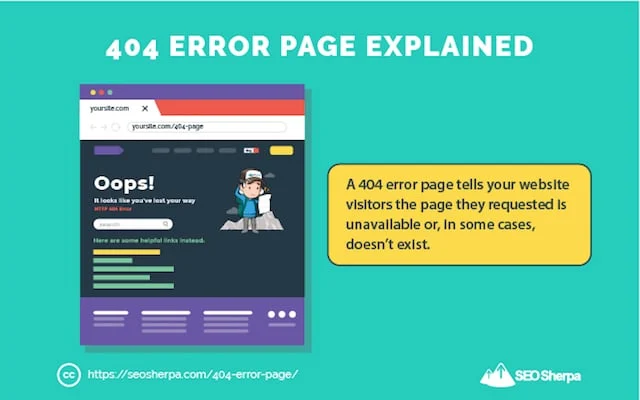
Your SEO strategy may contain connections to other websites or internal pages, and pages and content may be permanently deleted from a website sometimes. A 404 error page is shown when this occurs. Check your website’s links to ensure no pages have been removed without your understanding.
Double-check any links in your content to other blogs or websites. If the pages are gone, just replace the link with another credible source.
6. Monitor your URL organization
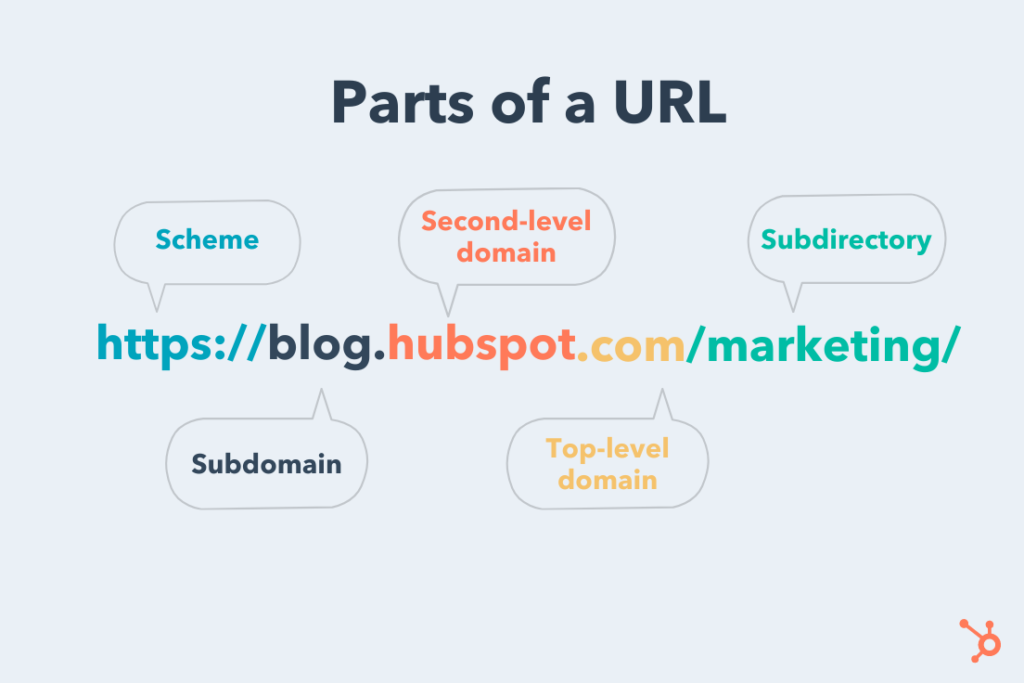
Even if you don’t realize it, a URL is more significant. For a website’s URL structure to be effective, you must follow it in the correct order. Eliminate underscores, capital letters, and special characters from URLs.
URLs should also be brief and sweet. Analyze the SEO myths and facts properly as people argue that lengthy URLs are better for long-tailed searches connected to your subject, but you should be aware of the risks.
To increase your search engine rankings, utilize short URLs focused on the core keyword you are trying to rank for.
7. Create backlinks
The importance of backlinks to search engine rankings has not diminished in recent years. To Google and other search engines, inbound links are a signal that your material is worth sharing.
Trustworthy sites should only have connections to you. If they’re from spammy, low-quality websites, you may even get a Google penalty if the algorithm thinks you’re attempting to game the system.
In the long term, obtaining high-quality connections is a worthwhile investment. You can’t buy links; you have to develop valuable content that others want to link to receive them.
8. Check your website speed.
The speed at which a user can access your website is critical, and search engines will take note if it takes too long to load. Crawling and indexing your pages will be impossible. Consequently, your site may as well not exist at all.
The design of your website should be based on your visitors’ needs. Slow site speeds can entice users to go to a competitor’s website. Your desktop website load time must be under two seconds, and your mobile website load time should be under one second.
It’s possible that your Google ranking may suffer as a result of a significant drop in online traffic if your site takes more than four seconds to load.
9. Prevent SEO attacks
As they refine their strategies, damaging SEO assaults are becoming more frequent for SEO marketers. Competition may attempt to punish your website and eliminate it from Google’s search results. Competitors may build many low-quality backlinks to your site, which can be used against you.
Monitoring your website’s backlink profile may help prevent SEO attacks. The Linkody SEO tool will alert you as soon as another website links to yours, allowing you to take appropriate action timely.
10. Assess the effectiveness of your marketing efforts
To improve your website’s SEO, establish linking relationships with local businesses and influencers. Insights may be gained by analyzing the data correctly. To determine which links provide the most traffic to your website, you must track SEO data.
Leveraging your SEO strategy and capitalizing on your efforts is accessible with more data. You may start utilizing inexpensive applications right immediately. A free tool such as Google Analytics can quickly assess your SEO approach once set up.
Investing time and effort into learning and using as many of these SEO secrets as you can will help your website rank higher. With these SEO facts, even those with minor or no prior knowledge can boost their company’s online presence and traffic.
Simply making minor tweaks to your website may significantly impact its search engine rankings. It’s never too late to get started!
Key Takeaways
- Improving your search engine ranking may be challenging but not impossible if you adhere to the fundamental guidelines of SEO.
- On-page SEO and a piece of high-quality content are vital factors for ranking.
- An accelerated mobile pages (AMP) website version is crucial since it considerably increases page performance, especially for slow connection mobile users.
- Ensure your website’s URL, text, HTML, images, and video are SEO-friendly. You may also put keywords in the filename and alt text.
- To illustrate the quality of your website, offer connections to other high-quality websites.
FAQs
Investing in SEO is valuable because SEO allows your business to gain traffic without paying for every click.
SEO problems that can hinder the success of your site are negative SEO, Google penalties, and keyword cannibalization.
On-page SEO mistakes include duplicate content, broken images and missing alt tags, poor quality external links, poorly structured internal links, slow page loading speed, and poorly optimized title tags and meta descriptions.
The meta description is usually (but not always) included in a SERP snippet along with the title and page URL. It is not a direct ranking factor.
Every website has a score, and the domain authority ranges between 1 to 100, calculated and run by Moz.
Latest Blogs
Learn how to rank on AI search engines like ChatGPT, Perplexity, and Gemini by optimizing your content for authority, structure, and relevance. Stay ahead in AI-driven search with this strategic guide.
Explore the best healthcare SEO services for your medical practice. Improve online visibility and effectively reach more patients in need of your services.
Discover top social media agencies specializing in banking solutions, enhancing financial services and driving engagement.
Get your hands on the latest news!
Similar Posts

Artificial Intelligence
6 mins read
The Role of AI in Digital Marketing: AI Article Generators Transforming Content Creation

Artificial Intelligence
4 mins read
How AI Content Creator Is Shaping the Future of Digital Content

Digital Marketing
3 mins read